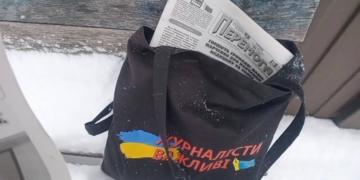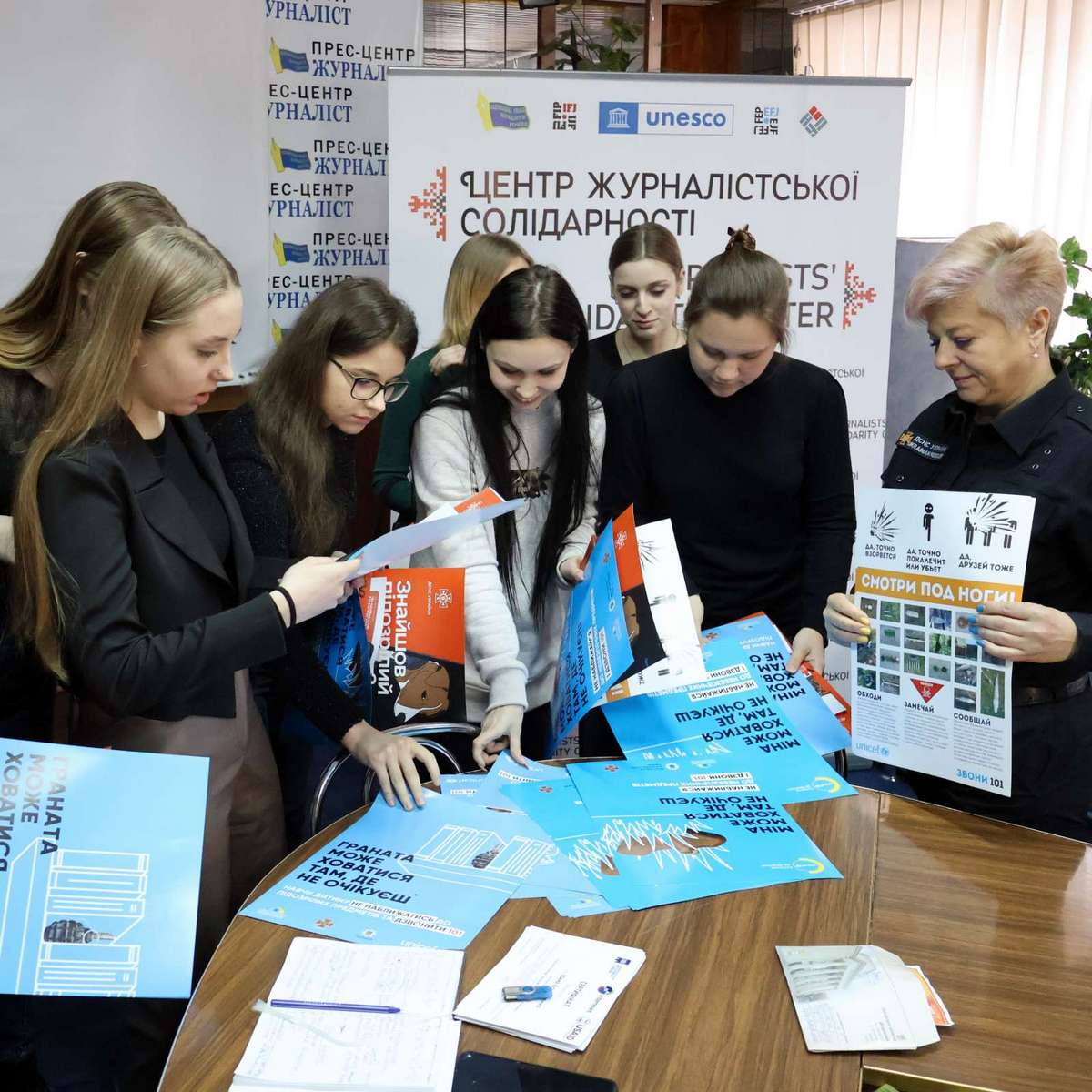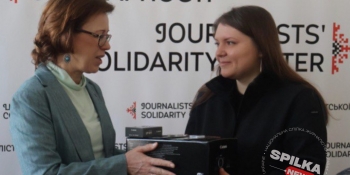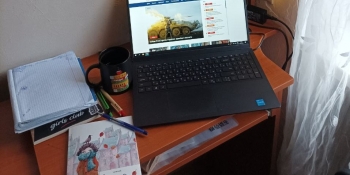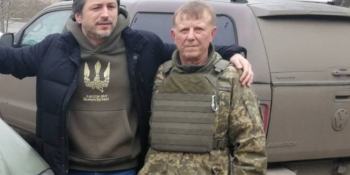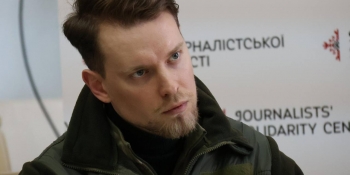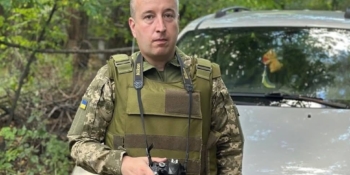Rescue service specialists taught young journalists the main aspects of land mine safety during a recent blitz training at the Journalists’ Solidarity Center in Zaporizhzhia.
“Due to their age, there is a somewhat frivolous attitude towards safety issues among young people,” says Yuliya Barysheva, a trainer-consultant of the Journalists’ Solidarity Center on Safety Issues/head of the Department of Media Relations and Public Relations of the State Emergency Situations Service of Ukraine (SESS). “Therefore, when working with young people, we pay particular attention to topics related to life safety. Young people need different approaches to covering this topic.
The rescuers reminded the young journalists of the order of priority actions in the case of detection of suspicious objects, and the classification of explosives emphasized the prohibition of visiting the civilian population to the places where hostilities were conducted or a missile attack was carried out, until the arrival and carrying out of special work by relevant specialists.
“It was an extremely useful and productive training,” Dariya Rybka, a journalism student at the Zaporizhzhia National University, shared her thoughts. “Now all that remains is to use the knowledge correctly and tell others how to self-protect in the front-line territory. We also really liked the bright and informative printed products that were distributed to us after the training. These are booklets, attractions, and leaflets created by UNICEF Ukraine together with the SESU on land mine safety and life safety.”
As earlier reported, Journalists’ Solidarity Centers are an initiative of the NUJU implemented with the support of the International and European Federations of Journalists, as well as UNESCO. The initiative is aimed at helping media representatives working in Ukraine during the war. The centers operate in Kyiv, Lviv, Ivano-Frankivsk, Chernivtsi, Zaporizhzhia, and Dnipro and provide journalists with organizational, technical, legal, psychological, and other types of assistance.
UNESCO is the United Nations Educational, Scientific, and Cultural Organization. It contributes to peace and security by promoting international cooperation in education, sciences, culture, communication, and information. UNESCO promotes knowledge sharing and the free flow of ideas to accelerate mutual understanding. It is the coordinator of the UN Action Plan on the Safety of Journalists and the Issue of Impunity, which aims to create a free and safe environment for journalists and media workers, thus strengthening peace, democracy, and sustainable development worldwide. UNESCO is working closely with its partner organizations in Ukraine to provide support to journalists on the ground.
The designations employed and the presentation of material throughout this digest do not imply the expression of any opinion whatsoever on the part of UNESCO concerning the legal status of any country, territory, city, or area or its authorities, or concerning the delimitation of its frontiers or boundaries.
The authors are responsible for the choice and the presentation of the facts contained in this digest and for the opinions expressed therein, which are not necessarily those of UNESCO and do not commit the Organization.
Valentyna Bystrova
Photo by Serhii Bizhko





